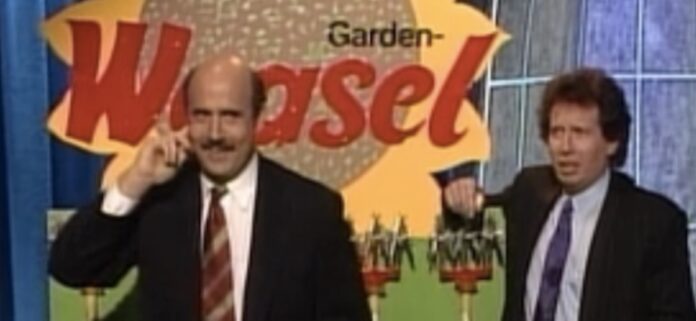The Larry Sanders Show
Season 1, Episodes 1 and 2: “What Have You Done For Me Lately” and “Promises”
Original airdates: Aug. 15, 1992 and Aug. 22, 1992
Reesav: Welcome back to my regularly scheduled Monday morning programming. As you may have already noticed, I’ve made some changes to the setup.
NBC, the 1980s, cops, and, regrettably, GO FAST BOATS have all been left behind.
I’ve shifted my focus away from Miami Vice and ventured into a completely different show from a distinct era.
I asked for your input, and surprisingly, many of you suggested I delve into shows like Dick Van Dyke and Blackadder. So, thanks for your input.
My friend Tim Bavlnka also came up with an excellent idea: The Larry Sanders Show.
That’s why I’m here, and to make things even more interesting, Nirajan is joining me for the initial 13 episodes (we’ll be covering two per week).
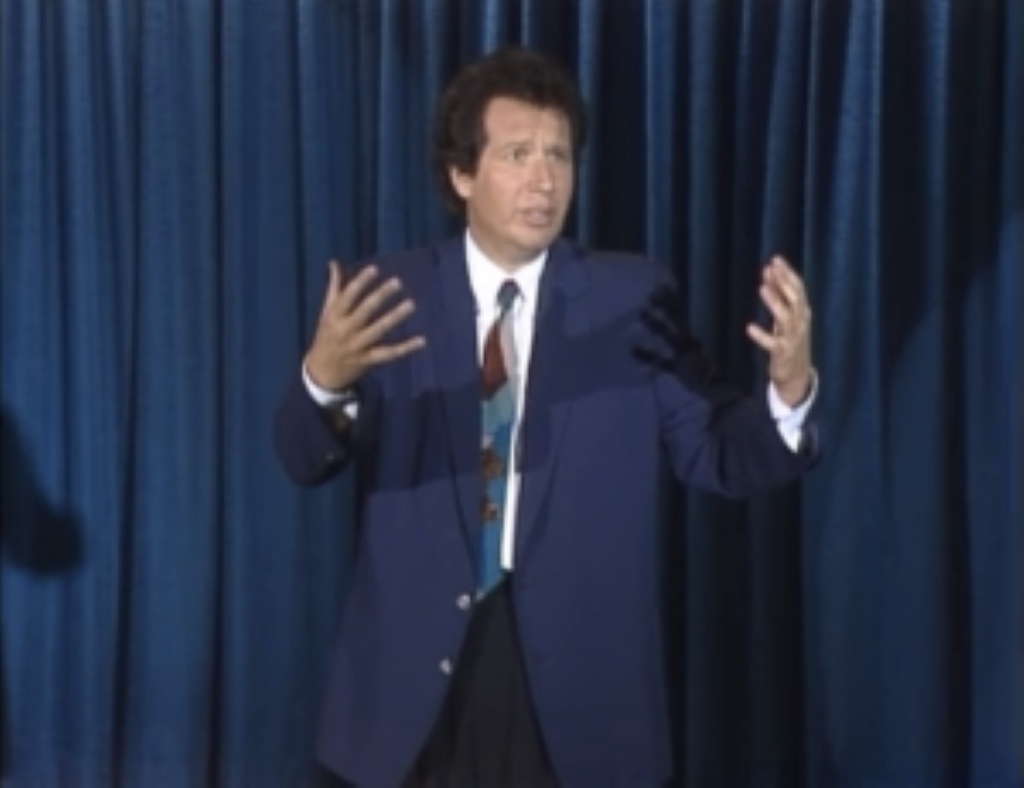
Like many of the older shows I’ve discussed here (and elsewhere), The Larry Sanders Show has always held a place on my list.
You’re familiar with the list. Anyone who loves television but doesn’t have all the time in the world (which is basically everyone, except maybe Alan Sepinwall) has a collection of shows they’ve missed and want to catch up on.
Sanders has consistently ranked near the top of my list, primarily due to its historical significance and subject matter.
While I don’t want to make sweeping generalizations, it’s fair to say that The Larry Sanders Show may have been somewhat neglected over time.
It was the first cable comedy to secure a nomination in a major Emmy category and undeniably left a significant imprint on several HBO comedies that followed in the 2000s (notably Curb Your Enthusiasm, Entourage, and Extras).
I find it a bit peculiar that a critically acclaimed, Emmy-winning show with a behind-the-scenes look at Hollywood, specifically focusing on the late-night talk show realm and produced for HBO, has sometimes fallen through the cracks.
It’s a topic the media relishes discussing and mythologizing.
However, it’s rarely mentioned in the conversation about the “greatest comedies ever.”
Maybe it doesn’t quite fit there, but I’m hopeful that our discussions over the next few weeks will help me get closer to an answer.
During this journey, Larry Sanders manages to extract a handful of solid laughs from the material, especially when Garry Shandling’s Larry reluctantly performs the live commercial for the Weasel for the first time and when Jeffrey Tambor’s Hank describes his mindset while engaged in promotional work.
However, for the most part, these episodes invest more time in establishing the plot, stakes, characters, and rhythms.
Despite the familiarity of these elements, I don’t find the approach troublesome in the least. Shandling, in his typical fashion, portrays Garry with charm and a touch of awkward egocentricity.
Tambor injects Hank with delightful enthusiasm, and Rip Torn embodies his signature Rip Torn style as Artie.
It’s a fantastic core that will undoubtedly continue to thrive.
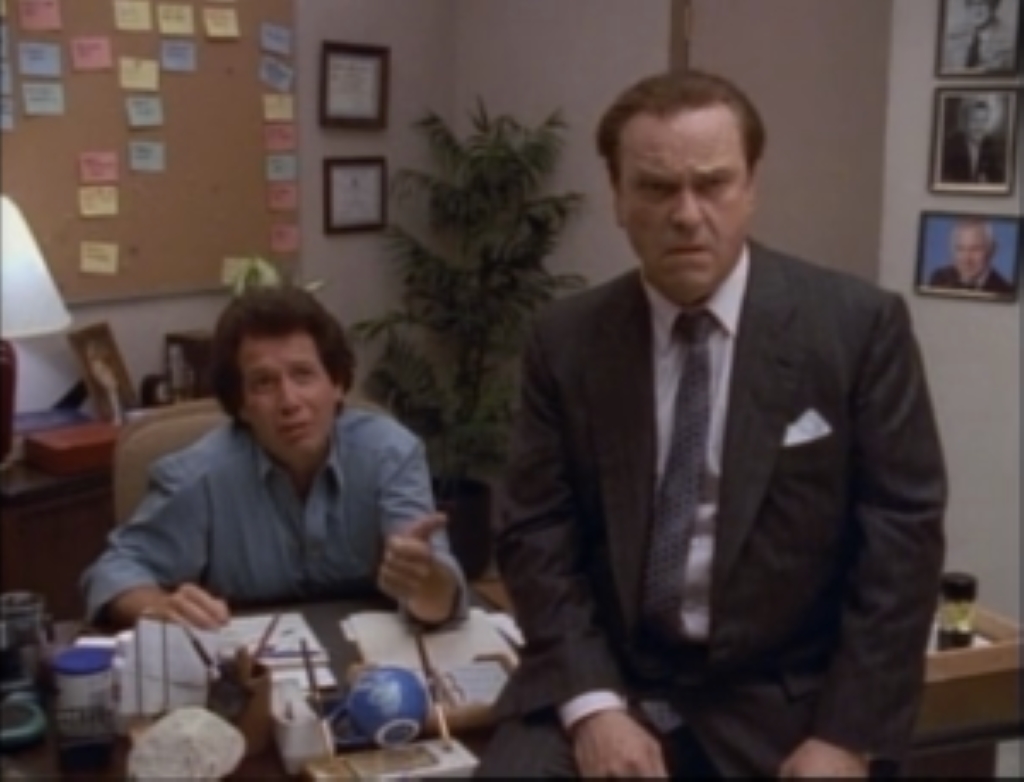
One of the byproducts of the show’s focus is its ability to offer multiple points of entry.
The pilot episode was undeniably funnier and more accessible, especially with the evident drama between Larry and the network.
However, the second episode, “Promises,” surprisingly delves into a substantial amount of pathos within the storyline involving Spade’s decision to appear on Leno.
While the behind-the-scenes processes and unspoken tensions are on full display when Spade makes a seemingly questionable move—and it’s worth noting that I quickly managed to suppress the strange positive feelings I had towards Spade in his initial moments here—the final few minutes of the episode stand out because they take an introspective turn.
Larry reflects on his early days as a stand-up comedian when he appeared on The Tonight Show, even though Merv Griffin gave him his big break.
While Larry tries to justify his choice due to different time slots, he ultimately (or perhaps momentarily) acknowledges that he likely acted selfishly in those earlier years.
He understands that’s often the nature of the business but can’t help but despise it when someone else does the same to him.
This sentiment is further reinforced when it becomes clear that both Spade and Larry were feigning remorse during their discussion about proper etiquette, which I found to be a sharp and fitting conclusion to a story that briefly touched on deeper emotions.
Therefore, even if The Larry Sanders doesn’t consistently deliver a multitude of laughs in every episode, I can readily connect with it if it continues on the path of prioritizing a touch of reality and pathos in its behind-the-scenes storytelling.
Nirajan, what are your thoughts? What was your familiarity with the show prior to this?
Nirajan: Honestly, my exposure to the show has been minimal.
Like you, it’s been sitting in my Netflix queue for quite some time, but it has always felt more like a show I should watch rather than one I wanted to watch.
Late-night talk shows, in my experience, tend to be either dull at best or unbearable at worst.
So, a series delving into the mechanics behind them didn’t vault it to the top of my to-watch list.
Despite my appreciation for Tambor and Torn’s work in other projects, I couldn’t name a single Garry Shandling endeavor without consulting Wikipedia.
However, even before we embarked on this project, it had been gradually climbing up my list, partly due to increased exposure during HBO’s fortieth-anniversary celebrations.
Notably, both Alan Sepinwall and Matt Zoller Seitz had it ranked high on their lists of the network’s most influential shows.
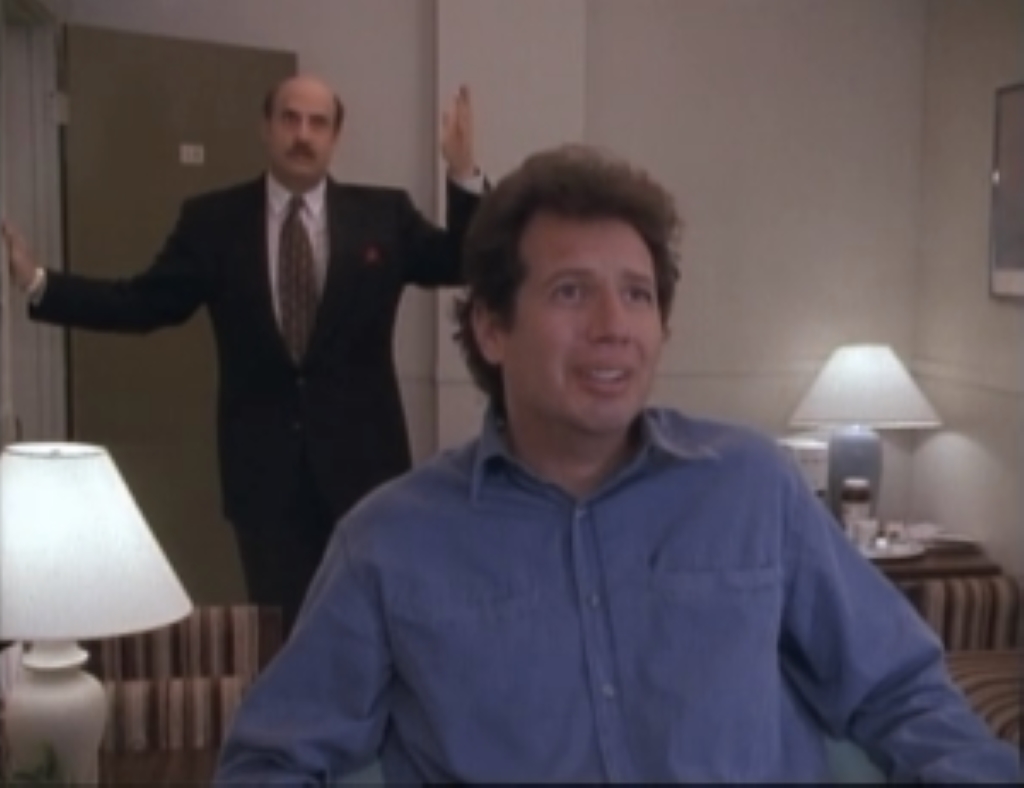
After two episodes, I have yet to perceive the greatness that everyone extols—not that I expected to, given the history of comedies requiring time to discover their footing.
However, I do recognize that the show possesses elements with the potential for greatness.
As you’ve mentioned, the restrained nature of these early episodes provides us with the opportunity to observe the dynamics of how these characters engage with one another, and the office environment appears to have all the essential components for a solid workplace comedy.
It’s also evident that the show possesses a deep understanding of the inner workings of show business—Spade’s violation of the “unwritten rule” serves as a clear example.
It doesn’t come across as preachy, akin to Aaron Sorkin’s style.
A significant portion of my early optimism stems from Larry himself.
What I appreciate most about Shandling’s depiction of Larry is how he doesn’t make an effort to hide his displeasure when his job forces him into actions he deems beneath him, partly because he views himself as superior and partly because he considers it a sheer waste of time.
His discomfort while filming the Garden Weasel commercial is the most conspicuous illustration—his increasingly strained grin as the commercial unravels is a joy to watch.
However, I find myself valuing even more the subtle moments, such as discarding his pilot’s cap before delivering his opening monologue in the second episode.
He’s not a character I sympathize with because he doesn’t come across as a creative comedic genius being held back.
Instead, he’s a man who’s accustomed to doing things his way and becomes agitated when anything disrupts his routine. This strikes me as fertile ground for comedy.
While the show bears Larry’s name in the title, there are several indications that it will transition into more of an ensemble piece, and it’s a promising ensemble to kick things off.
Rip Torn brings his quintessential Rip Torn persona to the forefront as the man who confronts the show’s challenges, all while hinting at a deeply disturbed personal life (“I saw Buddy Ebsen’s head floating above the dresser!”).
Jeffrey Tambor’s Hank embodies both an overlooked child desperately seeking a single “attaboy” from his coworkers and a source of unexpected wisdom.
(He even boasts his fan club—Kingsley’s Queens!) Scattered throughout are a few bit players—Janeane Garofalo as the show’s booker Paula, Jeremy Piven as head writer Jerry—known for their comedic prowess, and I anticipate we’ll see them develop further in the coming weeks.
Additionally, Larry’s roster of guest stars suggests that there will be no shortage of actors willing to playfully mock themselves, with Robert Hays and William Shatner serving as early examples.
*As a devoted Airplane! Fan, I couldn’t help but find joy in the fact that Hays chose the less-regarded sequel as evidence of his sense of humor.*
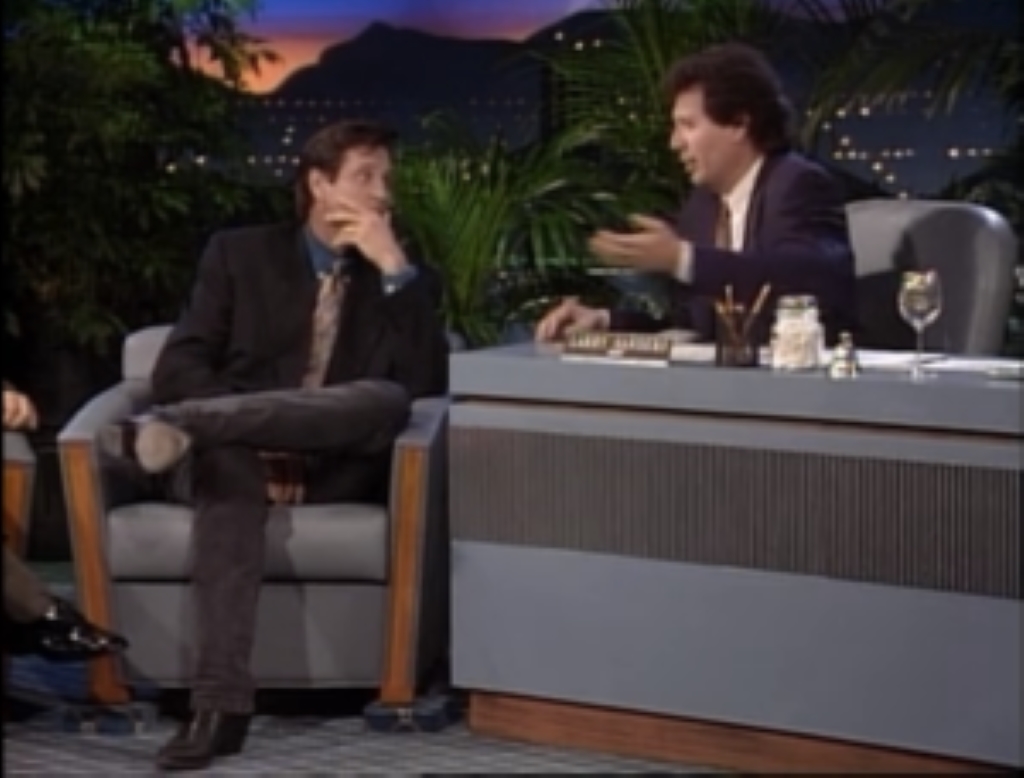
What I found most intriguing about these episodes was the structural choice to incorporate segments from Larry’s actual show—such as opening monologues and celebrity interviews—as they would appear to a television audience.
This decision contributes to the show’s context, especially since most of these segments are brief and don’t significantly divert attention from the behind-the-scenes aspects.
I’m pondering other shows where a similar approach might work. Perhaps, for modern counterparts, it would be like if 30 Rock included one or two TGS live sketches in each episode or if Smash presented its musical numbers in a way that resembled actual Broadway performances rather than moments where I’m perpetually convinced the singer is sipping tea brewed from hallucinogenic mushrooms.
Looking ahead, I’m curious to see whether this integration will become more deeply entwined with the show’s unfolding narrative or if, like the stylistic experiment of Sports Night’s single-cam/multi-cam hybrid, it will gradually phase out after the pilot.
Another aspect that piqued my interest early on, and I’m sure it will surface again as we delve into this series, was how the show managed to both feel dated and not feel dated.
Although we frequently watch older television for this site, the references here created one of those rare instances where it seemed anachronistic—take, for instance, Larry’s opening monologue discussing Bill Clinton’s appearance on The Arsenio Hall Show or Dana Delaney promoting her upcoming work on Wild Palms.
(I wonder if this might be a reason the show has been somewhat overlooked in discussions of great comedies, compared to something more timeless like Cheers or Dick Van Dyke. Hm.)
On the flip side, the stories remain grounded in enduring concepts within the entertainment industry, such as the confounding nature of network notes and the ongoing segmentation of the audience, transcending those “oh, the 90s” moments.
So, much like you, I’m not entirely won over by the show at this point, but I believe it’s a promising beginning, and I’m definitely eager to see where it leads.
I look forward to our continued conversation about this series.
You Might Like: Team-Up Review: My So-Called Life, “Other People’s Mothers”


